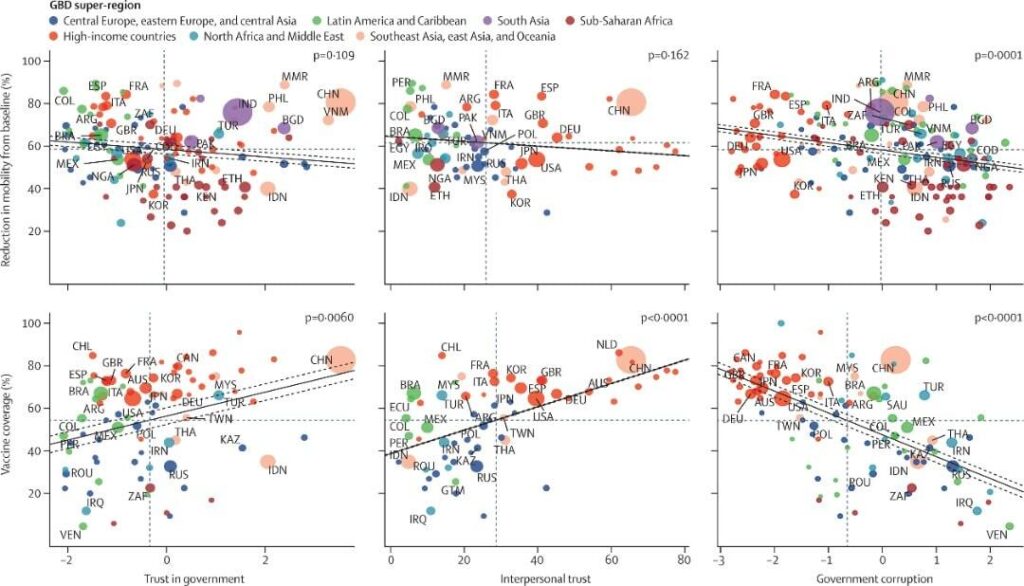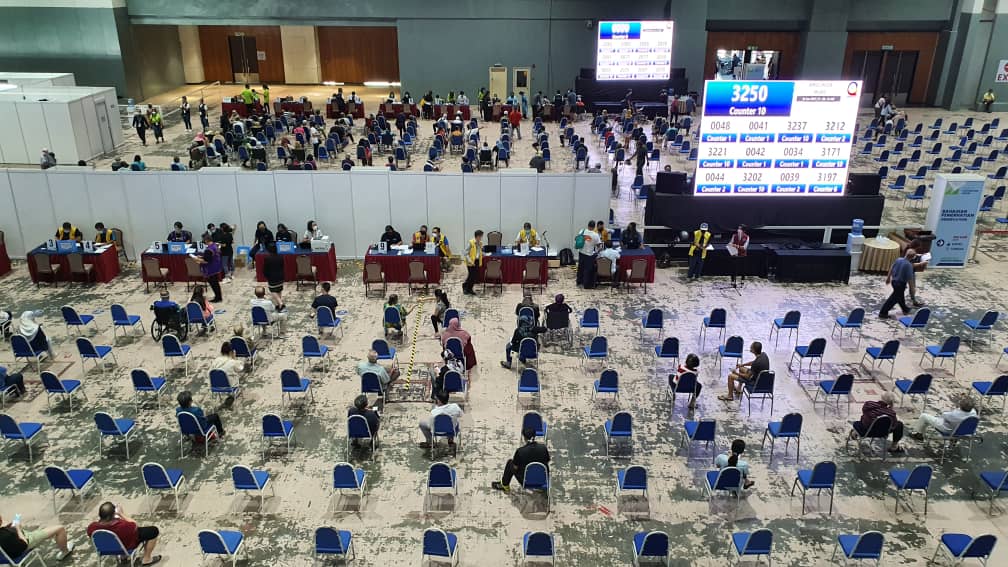KUALA LUMPUR, Feb 4 – Malaysia enjoyed high Covid-19 vaccine coverage amid high trust in the government, and despite low interpersonal trust and somewhat high government corruption, a study found.
An exploratory analysis of Covid-19 infection and fatality rates and contextual factors associated with preparedness across 177 countries published February 1 in medical journal The Lancet revealed that pandemic preparedness, hospital capacity, and universal health care were not significantly linked to Covid-19 infection or fatality rates.
Instead, the peer-reviewed study interestingly found that higher levels of trust in the government and in people around us were strongly associated with fewer coronavirus infections, though not with differences between countries in Covid-19 death rates.
Less government corruption had a smaller, but still statistically significant, link with fewer Covid-19 infections and no correlation with coronavirus mortality rates.
The study, which was conducted from January 1, 2020, to September 30, 2021, looked at how government trust, interpersonal trust, and government corruption contributed to reductions in Covid-19 infection rates by examining the links between these factors and vaccine coverage and reductions in mobility.
Reduced mobility is perceived as compliance with physical distancing rules and mandatory movement restrictions.
The research found that higher levels of government and interpersonal trust, and less government corruption, were associated with greater Covid-19 vaccine coverage. Less government corruption was also linked with higher reduction in mobility.
In a graphic, the study showed that Malaysia had lower interpersonal trust than other countries and lower reduction in mobility at under 60 per cent from the baseline.
Malaysia also showed higher trust in the government than other nations and high Covid-19 vaccine coverage at nearly 80 per cent.
Interestingly, Malaysia’s coronavirus vaccination rates were high despite less interpersonal trust and more government corruption than other countries. According to the study, low interpersonal trust is highly correlated with income inequality and government corruption.

Generally Nordic and East Asian nations with high levels of trust performed well in managing Covid-19 — in terms of infections and mortality ratio — compared to countries with low levels of trust or confidence in their government or authorities.
Thomas Bollyky, one of the study’s authors, highlighted that other factors including pandemic preparedness, democracy, income inequality, populism, government effectiveness, universal healthcare, and hospital capacity were not associated with Covid-19 mitigation.
“Trust is an area where governments can move the needle, and the fact that it outweighs traditional measures of health care capacity and pandemic preparedness should be a wakeup call for all of us as we face the ongoing pandemic and the threat of future disease outbreaks,” Bollyky was quoted as saying.
This study explained why certain countries like the United States did not fare well in combating Covid-19 despite having high quality of health care, compared to other high-income countries, as Americans had less trust in their leaders. The US has emerged as one of the countries worst hit by the Covid-19 infections and deaths per capita in the world since the coronavirus was first detected.
The study stated that countries like Burundi, the Philippines, and the Dominican Republic are some of the countries that scored lower in pandemic preparedness and response as well as health care capacity indicators, but successfully maintained lower Covid-19 infections and deaths.
This study noted that if other countries improve trust in government — on par with Denmark — about 12.9 per cent fewer Covid-19 infections would have been reported globally, whereas increased interpersonal trust to the level of Denmark would have reduced Covid-19 infections worldwide up to 40.3 per cent.
This study suggested that compliance to standard operating procedures (SOPs) like wearing a face mask, maintaining physical distancing and following quarantine rules require behavioural changes of the people. For that, trust in government and interpersonal trust become the key to instilling successful behavioural changes in people.
“Collectively, trust among people and in their government can change behaviour such that if people respond to directives and take protective health measures, they might expect other members of the community to do the same,” the study mentioned.
According to study co-author Erin Hulland, a researcher from the Institute for Health Metrics and Evaluation (IHME), effective risk communications strategies and community engagements have boosted the trust of people towards the government during a health crisis like a disease outbreak.
Hulland, who quoted the situation in West African countries during the Ebola outbreak, said: “We hope these findings can be leveraged to increase support for strategies that can improve trust and bolster resilience against future threats.”








